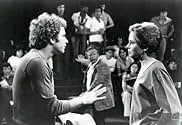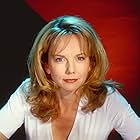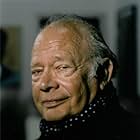Ron Howard executive produced and co-wrote the original treatment for this gauche comedy wherein a strait-laced public relations man in Hollywood is suddenly saddled with his theater arts buddy from college, a starry-eyed terminal-juvenile who has driven out from Philadelphia to find acting work (amusingly, television appears to be his goal, not the movies). Donny Most is Leo--whose only talent appears to be belching on command--while the Loree half is Linda Purl, the daughter of a famous actress who wants to carve her own niche in show business. Howard, Most, screenwriter Jim Ritz, director Jerry Paris (who also appears), and Linda Purl all worked together on TV's "Happy Days" (Purl would become a regular two years later). This movie should have been a freeing artistic exercise, but instead it's bogged down in Sitcomville, lacking everything that made "Happy Days" a hit: warmth, good humor, funny characters, and far better writing. Most--sort of a cross between Danny Bonaduce and an early version of Bruce Willis' David Addison from "Moonlighting"--really eats up the camera; even when he's working hard at being sincere you can't believe it. Purl gives the movie a bit of polish, and director Paris lends some mildly funny satire to the proverbial L. A. audition cycle. The rest of "Leo and Loree"--including an excruciating pop music soundtrack--is utterly forgettable.
















